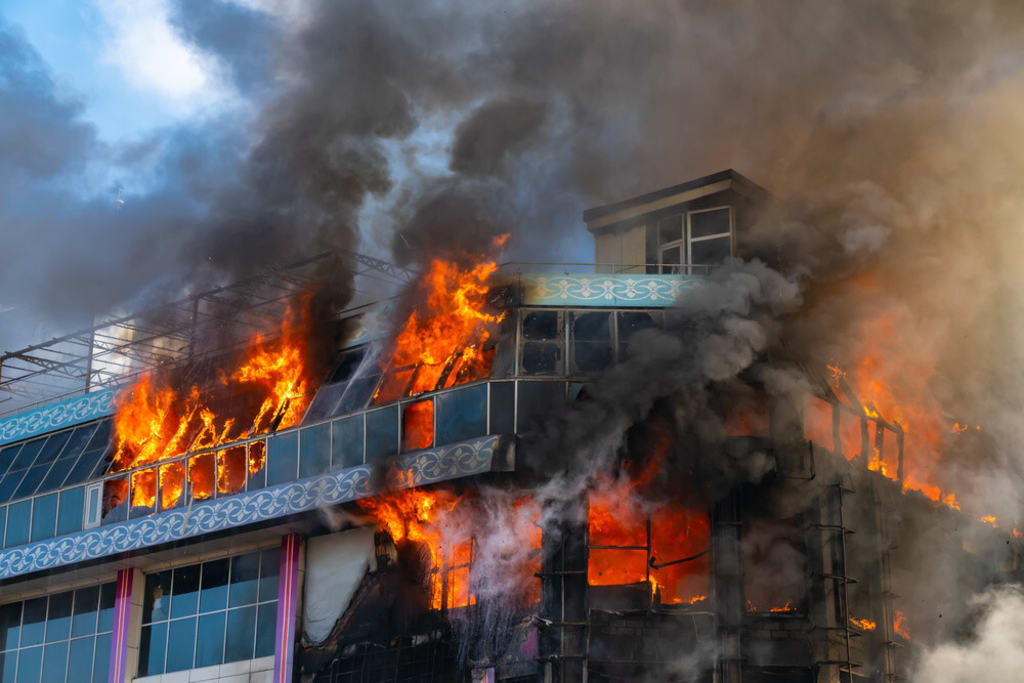HOW TO SURVIVE A BUILDING EXPLOSION
Survivors Of Beirut Explosion On Where They Were And The Horrifying Aftermath

Survivors Of Beirut Explosion On Where They Were And The Horrifying Aftermath
It's a quiet start to the day as the morning sun illuminates the urban paradise below your apartment. The quiet shatters when an explosion rips through the streets from nearby construction.
Together with the debris quickly heading your way, here is what you need to know on How to Survive a Building Explosion. Devastating but infrequent, the long-term effects created by building explosions are disastrous enough to last a lifetime.
The sudden blast shattered her chimney, dispersing glass throughout the floor.
Since the ceiling rained down on Samah and her baby child, she sensed in any given moment; her home would fall beneath her. This family emerged from the rubble alive, but imagine if you're in a high-rise construction?
How can you handle a shockwave? How do you get hurt?
No matter how they occur, building explosions create havoc at the moment. Nonetheless, it's the physical and psychological trauma that haunts the survivors, just like a recurring nightmare. Should you find yourself in the middle of the frenzy, follow these steps.
Step 1: Stay Away From the Blast Site
While you cannot assist your proximity to the blast site during the explosion, afterward, keep your space and, if possible, leave the area immediately. If the burst creates a fireball, the temperature can grow to 4,000 degrees Celsius (7,200 degrees Fahrenheit) in the source, scorching the body instantly and potentially setting off following explosions.
At the detonation site, the atmosphere pressure grows outward quickly, creating a vacuum. Called a burst wind, this tiny void refills itself by exerting a massive force that pulls in each nearby object and individual.
Stay clear of this epicenter to avoid these high-velocity winds. If you are in the building where the blast occurred, do not use the lifts, and look for emergency officials at the scene. And if you're in a building that is safe and from the website, remain there. Prevent your individual instinct to rush in danger, or you could end up as yet another victim.
Step 2: Stay Near the Ground
The explosion sends a blast wave made of highly compressed air pollutants moving faster than sound speed. Suck in that gut because your gastrointestinal tract is totally vulnerable in this burst, putting your vital organs in danger of internal rupturing and ripping.
Keeping low may keep you safer from the debris flying over your head and the blast wave itself. Next, if you are feeling nausea and abdominal pain, seek immediate medical care.

Step 3: Empty Your Lungs
When in crisis, humans naturally desire to hold their breath. But if your lungs are full of a lot of atmospheres, they could burst as a shockwave rips through your body.
This deadly wave expands outward and up, carrying energy as it moves through objects and organs like your lungs. Breathing in small intervals will continue to keep the pressure on your lungs low, which makes them less inclined to burst.

Step 4: Stay Away From Windows
Your eyes are sensitive enough to be damaged by the blast wave, even without direct contact, causing lesions and impairing your vision for life. Keep your head down; however, the real threat is to come.
While the blast wave will shatter windows near the website, it's the deadly shockwave that breaking windows further away. Avoid windows to prevent the flying glass, which could cause substantial harm to your eyes. Eye injuries are potentially deadly and are suffered by one out of ten blast survivors. While you may think you're safe in the distance, that bird's eye perspective could be the very last thing you see.
Step 5: Protect Your Head
Your ears are also dangerously vulnerable, based on your orientation into the blast. With the pressure increasing to over 103 kilopascals or 15 pounds per square inch in a minute, the burst wave is powerful enough to rupture your eardrums, maybe resulting in permanent hearing loss.

Cover your head with your arms and curl into a ball, tucking your face near your torso. Without a direct hit to the mind, the principal blast can be strong enough to cause a concussion or a mild brain injury.
Besides the lingering physical harm done to their bodies, survivors of constructing explosions frequently suffer from post-traumatic stress disorder (PTSD) and the guilt of being alive.
Long after the rubble was cleared and the dead are laid to rest, individuals can feel a sense of pity for surviving when many didn't. Think about seeking medical information when coping with PTSD or physiological injury to stop any negative long-term consequences.






Comments
There are no comments for this story
Be the first to respond and start the conversation.